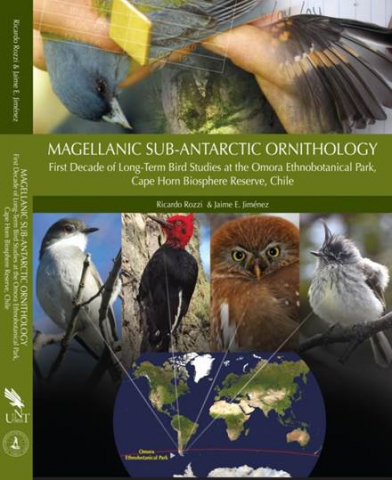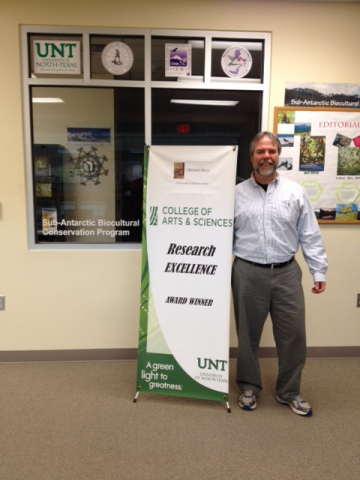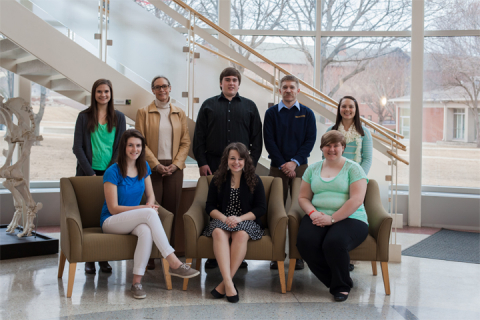Book: Magellanic Sub-Antarctic Ornithology First Decade of Long-Term Bird Studies at the Omora Ethnological Park, Cape Horn Biosphere Reserve, Chile
The Sub-Antarctic Biocultural Conservation Program (SBCP) and the Center for Environmental Philosophy (CEP) hosted a Book Presentation on Earth Day, Tuesday April 22, 2014. Drs. Ricardo Rozzi and Jaime Jiménez edited a book entitled Magellanic Sub-Antarctic Ornithology First Decade of Long-Term Bird Studies at the Omora Ethnological Park, Cape Horn Biosphere Reserve, Chile. The book is the third in the Sub-Antarctic series from publishers, UNT Press and Universidad de Magallanes. It present details of the first eleven years of bird studies in the Omora Park at the southern tip of the Americas, and has become the longest continuous bird banding program run in temperate and sub-Antarctic forests of the Southern Hemisphere. For 15 years, during every month, UNT SBCP researcher along with their Chilean partners, Universidad de Magallanes and Institute of Ecology and Biodiversity (IEB-Chile) have conducted ornithological studies, and developed a novel and growing sub-Antarctic biocultural conservation editorial line.
This book provides a synthesis of information on birds inhabiting the world's southernmost forests. The first part provides detailed information on morphology, longevity, migration patterns, and life histories of the forest bird populations in the Cape Horn Biosphere Reserve, and a summary of the data recorded for 26 bird species captured with mist-nets and banded. The second part of the book contains a selection of twenty-four published articles on ornithological research at Omora Park from 2000 to 2010 from various scientists.
RICARDO ROZZI is a professor in philosophy and religion studies at the University of North Texas and JAIME E. JIMÉNEZ is a professor of biology at UNT with a co-appointment in philosophy and religion studies. They are co-directors of the Sub-Antarctic Biocultural Conservation Program.




